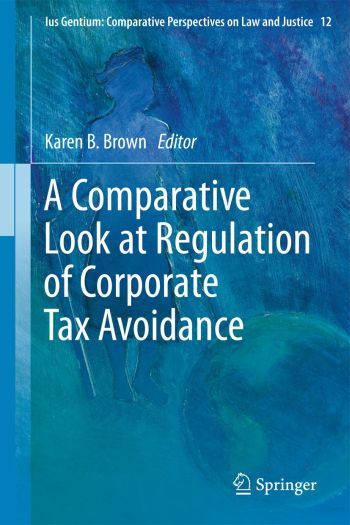
This volume provides a fascinating look at the anti-tax avoidance strategies employed by more than fifteen countries in eastern and western Europe, Canada, the Pacific Rim, Asia, Africa, and the United States. It surveys the similarities and differences in anti-avoidance regimes and contains detailed chapters for each country surveying the moral and legal dimensions of the problem. The proliferation of tax avoidance schemes in recent years signals the global dimensions of a problem presenting a serious challenge to the effective administration of tax laws.
Tax avoidance involves unacceptable manipulation of the law to obtain a tax advantage. These transactions support wasteful behavior in which corporations enter into elaborate, circuitous arrangements solely to minimize tax liability. It frustrates the ability of governments to collect sufficient revenue to provide essential public goods and services. Avoidance of duly enacted provisions (or manipulation to secure tax benefits unintended by the legislature) poses a threat to the effective operation of a free society for the benefit of a small group of members who seek the privilege of shifting their tax burden onto others merely to compete in the world of commerce. In a world in which world treasuries struggle for the resources to battle terrorist threats and to secure a decent standard of living for constituents tax avoidance can bring economies close to the edge of sustainability. As tax avoidance is one of the top concerns of most nations, the importance of this work cannot be overstated.